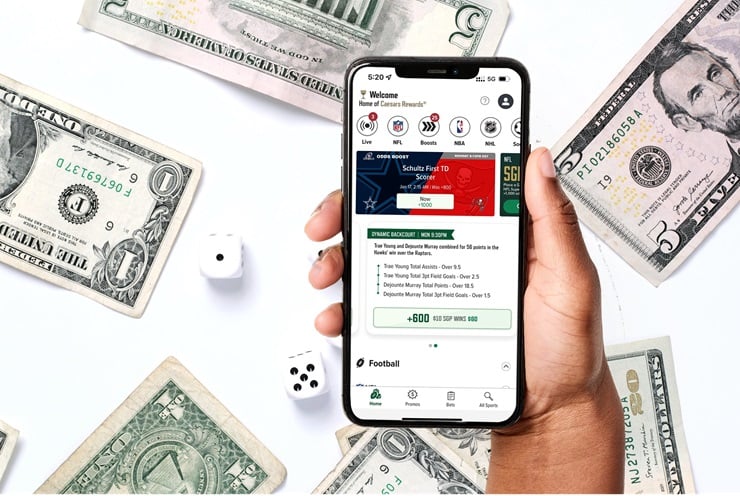It is difficult for today’s sports fans to escape the conclusion that sports gambling dominates sports advertising. Across the four major sports leagues in North America, it’s impossible to watch a broadcast without being bombarded by ads for sports-betting apps. Perhaps this is due to the staggering $7.4 billion revenue that these apps raked in throughout 2022, and the projection of approximately $7.6 billion by the end of 2023.
These in-your-face ads are known to target younger demographics, poor people, and addicts, luring them into the empty promises to be found in the endless rabbit hole of gambling. Flashy offers like “$150 in free bets if you sign up now” allow impressionable people to get their feet wet in a dangerous habit. Other ads interrupt broadcasts to inform you of the “live odds” at during the game, reminding the viewers that there is still time to blow this week’s paycheck.
In 2023, spending on advertisements for sports gambling is expected to reach an unfathomable $2 billion.
Prior to the 2023 Super Bowl, FanDuel, one of the larger betting apps, relentlessly promoted a gimmick to be staged during the event. Former NFL star Rob Gronkowski would attempt a field goal kick which, if he cleared, would have meant users nationwide would have had a combined total of $10 million in free bets. The ads leading up to the attempt were constant, though the moment itself lasted no longer than 30 seconds and he ended up missing the kick. Nevertheless, this was one of the most notable gambling app ads of the year.
The industry also uses big-name celebrities to promote their wares, like the massively popular hip-hop artist Drake. Drake, boasting well over 100 million followers on Instagram, often posts his massive bets on the platform “Stake,” including a $400,000 bet in an NHL playoff.
The astonishing revenue from online gambling opens the door to the idea that sports are now being rigged in favor of whichever team or opponent “Vegas” needs or wants to win. This, for many, could ruin the experience of watching their athletic competitions, as they suspect that what they are cheering may have already been decided. Many questionable refereeing decisions bring about this idea amongst fans.
This rapid change to the advertising landscape is owing to a May 2018 Supreme Court ruling striking down the Professional and Amateur Sports Protection Act (PASPA). PASPA prohibited sports betting in a majority of U.S. states since President George H. W. Bush signed it into law in 1992. Overturning this law gave states the individual authority to decide whether sports betting was allowed in their respective states. Since then, many states have jumped on the opportunity to allow sports gambling within their borders. New Jersey led the way, being the first to legalize online sports betting following the ruling. Twenty-eight other states followed suit by allowing various forms of sports betting and various sportsbooks to operate within their jurisdictions.
Like the now-banned cigarette ads of the last century, gambling ads may become a problem too large to ignore and may eventually suffer the same fate. Gambling disorders already affect approximately 1 percent of all Americans, a statistic that is sure to grow as this culture on online betting spreads. A gambling disorder is when a person’s daily life is interrupted due to a near-unstoppable gambling addiction. While ads for these apps do tell their users to gamble responsibly, such warnings may be as useful as the surgeon general’s warning on a pack of cigarettes is to life-long smokers.
Prior to the start of this year’s NHL season, Ottawa Senators forward Shane Pinto was suspended for 41 games for allegedly gambling on sports (a full NHL season is 82 games). Ironically, all last season the Senators’ helmets advertised “Bet99,” a sportsbook popular in Ontario.
The consequence is that one of Ottawa’s youngest players must sit out half a season for alleged sports gambling while the team he plays for takes in revenue from gambling advertising. Leagues like the NHL have made their moral stances clear—their millionaire star players may not engage in gambling (not even on other sports) but the viewer at home, who in most cases has far less disposable income, is subjected to over two hours of gambling propaganda during each broadcast.

Leave a Reply